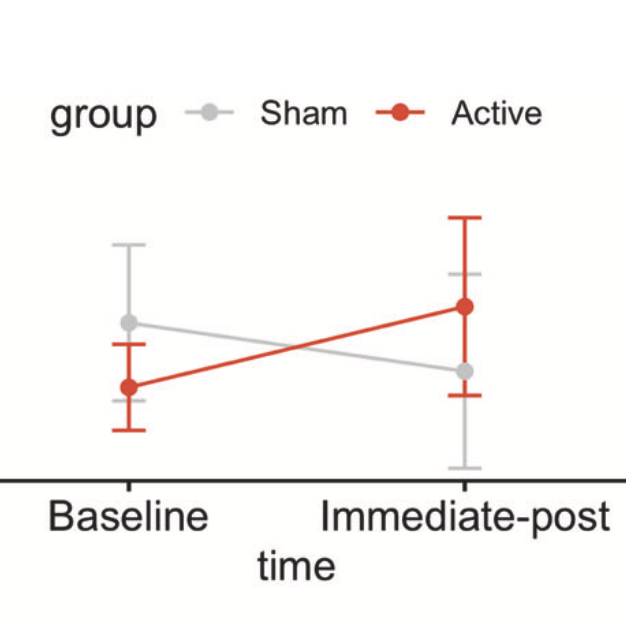Abstract
Here, we investigated the brain functional connectivity (FC) changes following a novel accelerated theta burst stimulation protocol known as Stanford Neuromodulation Therapy (SNT) which demonstrated significant antidepressant efficacy in treatment-resistant depression (TRD). In a sample of 24 patients (12 active and 12 sham), active stimulation was associated with significant pre- and post-treatment modulation of three FC pairs, involving the default mode network (DMN), amygdala, salience network (SN) and striatum. The most robust finding was the SNT effect on amygdala-DMN FC (group*time interaction F(1,22)=14.89, p<0.001). This FC change correlated with improvement in depressive symptoms (rho (Spearman) = −0.45, df=22, p=0.026). The post-treatment FC pattern showed a change in the direction of the healthy control group and was sustained at the one-month follow-up. These results are consistent with amygdala-DMN connectivity dysfunction as an underlying mechanism of TRD and bring us closer to the goal of developing imaging biomarkers for TMS treatment optimization.
